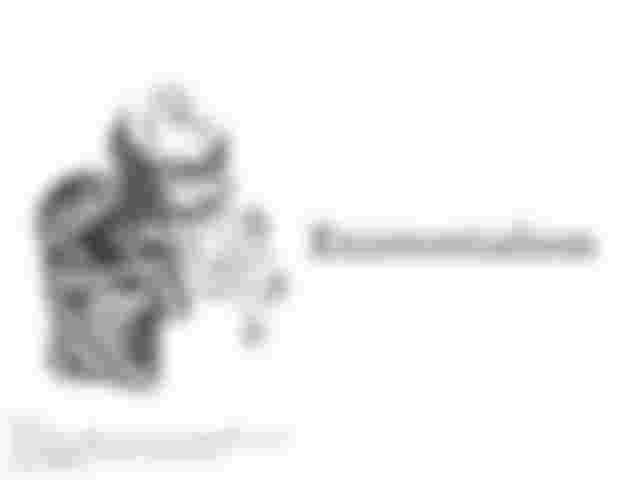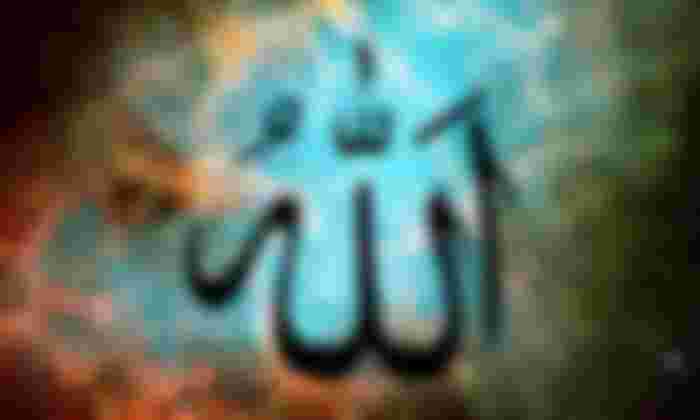A COMPARATIVE STUDY OF EXISTENTIALISM AND MEANING OF LIFE IN ISLAM

Muhammad Imran Ayub
Department Of English BZU Multan
A COMPARATIVE STUDY OF EXISTENTIALISM AND MEANING OF LIFE IN ISLAM
M.Imran Ayub BZU Multan
Abstract:
Throughout the ages scholars and intellectuals have been trying to demonstrate the meaning of life because it has been the most basic problem of intellectual debate .Here ,this paper throws light on two viewpoints about the meaning of life ,first is Existentialism and second is Islamic perspective . This study presents a comparative analysis of these standpoints. Existentialism emphasizes that meaning comes from the individual not from any supernatural authority , morality is relative and there is no objective truth .Islam says there is God who has created human beings with a purpose that is to acknowledge and worship God alone . This study revealed that both perspectives are altogether different and they cannot be compatible with each other at any level.
1. Introduction
What is the meaning and purpose of existence? This is perhaps the most important question that has been asked . Throughout the ages, philosophers have considered it to be the most fundamental question. Scientists, historians, philosophers, writers, psychologists and common man all wrestle with the question at some point in their lives . This article presents a comparative study of two perspectives about life , one is 'existentialism' which is basically a western viewpoint and other is 'Islamic perspective' on the meaning of life . In the following pages ,on the one hand it has been tried to give a brief overview of existentialism, its meanings, principles and its impact on the life of individual and society as well. On the other hand Islamic standpoint about the meaning of life , purpose of creation and how this perspective shapes the worldview of of believers and brings changes in their lives ,has been elaborated .So that we can have a better comparison of these two outlooks on life.
2. Existentialism

Existentialism is a philosophical and literary movement that focuses on the experience of an individual person and the way he or she understands the world (Existentialism: Definition, History, Characteristics &Examples, 2015). It is also an outlook or a perspective on life that pursues the question of the meaning of life or meaning of existence. This question is seen as being of supreme importance in existentialism.
2.1 Historical View
There are three phases of existentialism . First is represented by the Danish philosopher Kierkegaard who published his works in 1940s. Second phase is German and it remained between 1880 and 1940. It refers to the intellectual activities of Nietzsche, Husserl and Heidegger. Third phase which is the most recognizable one, is French version of existentialism that became the dominant philosophical trend between 1930 and 1970. Jean Paul Sartre , Albert Camus and Simone de Beauvoir are famous French existentialists.(Bolea, 2014).
2.2. Meaning of Existence
The word 'Existence' is very basic term in existentialism .Soren Kierkegaard was the first person who used the word 'existence' in a religious sense. According to Sartre( n.d.) "by definition, existence is not the necessity. To exist is to be there, simply, the existing appear, let meet , but we can never claim it ". The existentialists use existence to refer to specifically to human existence .They describe man as a concrete individual capable of being conscious that one exist . (Raoshab, 2015).
2.3. Nature of Existential Thought

According to Encyclopedia Britannica
a: Existence is always particular and individual.
b: Existence is always primarily the problem of existence , therefore also the investigation of the meaning of Being.
c: The investigation is continually faced with diverse possibilities from among which the man must make a selection ,to which he must then commit himself.
d: Existence is always a being in the world , so to say , in a concrete and historically determinate situation that limits or conditions choice.
2.4. Existence Precedes the Essence
Existentialism is considered as a philosophy of Being .It focuses on individual's personal experience . Sartre(1946) argues, "existence precedes the essence" .It means a man is not born with any innate personality .Rather an individual comes to be a particular kind of person through the goals that he pursues and the values he adopt. There is no predefined essence to humanity except that which it makes for itself. Sartre further adds " Man is first -only afterwards is this or that .Man must create for himself his own essence"
2.5. Existentialism and Humanism

Existentialism has a very strong association with humanism. Humanism is a life stance which states that human beings have the right to give meaning and shape to their own lives .It is not theistic and it rejects any supernatural view of reality (American Humanist Association, n.d.) So it can be stated that Existentialism is a form of Humanism because it views human beings as valuable in themselves and nothing else as having such intrinsic value.
2.6. Existentialism and Ethics

Jonathan Weber argues that" as originally defined by Simone de Beauvoir and Jean Paul Sartre existentialism is the ethical theory that we ought to treat the freedom at the core of human existence as intrinsically valuable and the foundation of all other values "(2018:2).So human freedom is of great importance in existentialist ethics .According to Routledge Encyclopedia of Philosophy , moral values are 'created' rather than 'discovered' and moral life should not be a matter of following the rules.
2.7. Principles of Existentialism
2.7.1. Subjectivity
Soren Kierkegaard (ND) said , " truth is subjectivity and subjectivity is truth". It means individual can be understood only from the inside , in terms of his lived and experienced reality and dilemmas, not from outside in terms of any scientific theory of human nature .Therefore existence can not be defined objectively.
2.7.2. Disbelief in God

According to existential thought man is self determined, when man is the final authority then there is no need for God. Sartre also believes that there is no determinism, which means that there is no God or any other power to compel or guide man in his choice.
2.7.3. Freedom of Choice

Disbelief in God ultimately leads human beings to unlimited freedom .Man is free to do whatever he wants to do and there is no compulsion in choice , consequently man becomes his own master but to make freedom meaningful one must be aware of possibilities that are open to him otherwise freedom will be illusory.
2.7.4. Authenticity and Anxiety

Authenticity is associated with the concept of freedom .Authenticity can be described as a process of taking responsibility for one's own experience and action , instead of viewing this experience as defined by society. The realization of responsibility gives rise to anxiety .In a world that does not offer ultimate securities , when someone choose to make choices with his responsibility for the consequences of those choices , he will have to face the anxiety.
2.7.5. Nothingness

Individual's whole life is believed to be suspended between two poles of nothingness - that before birth and after death. Martin Heidegger says," personal existence is launched between nothingness and nothingness and it is nothingness that is real , everything is absurd .(Raosaheb,2016)
2.7.6. Absurdity

Human existence is described as absurd due to following reasons. First, nature as a whole has no design, no reason for existing. Second meaning of absurd the absurd is this: my freedom will not only be undetermined by knowledge or reason but from the point of view of letter my freedom will even appear absurd. Third a free action , once done is no longer free because it has become an as aspect of the world ,a thing.
3.MEANING OF LIFE IN ISLAM

3.1. ISLAM
What is Islam? “Islam is an Arabic word and connotes submission, surrender, and obedience. As a religion, Islam stands for complete submission and obedience to Allah and that is why it is called 'ISLAM' ". (Maududi, 1960). In order to define meaning of life in Islam , it is something of great importance to elaborate the concept of God in Islam because the concept of God is very essential and fundamental in Islam .
3.2. Concept of God

" Behold ! in the creation of the heavens and the earth ,
and the alternation of night and day there are indeed signs for men of understanding ".(Quran 3:190) When we read a book , we accept that an author exists. When we see a house, we accept that a builder exists. All the heavenly bodies are controlled by precise laws of physics. Can there be laws without a lawmaker? The design, order and complexity of universe are evidence of the existence of a supreme intelligence, a perfect designer. This Creator, Prime Mover and Perfect Designer is Allah (SWT) Who is omnipresent and omniscient.
3.3. Order In the Universe
Contrary to existential thought Allah (SWT) has created this universe in well organized and well structured manners and it is very evident that this universe has great order in itself. Rocket scientist Dr von Brun said:" the natural laws of universe are so precise that we have no difficulty building a spaceship to fly to the moon and can time the flight with the precesion of a fraction of a second, these laws must have been set by somebody ".
3.4. Purpose Of Creation

Opposed to extentialist viewpoint , there is a predefined purpose of all this existence in Islam. Paul Davies concludes that man's existence is not a mere quirk of fate .He states," We are truly meant to be here". It means existence is not accidental . If we were made by a creator then surly they Creator must have had a reason , a purpose in creating us. Allah (SWT) has not left us to our own devices to find the meaning and purpose of life . He has guided us through revelation. God sent thousands of prophets ,at least one to every nation , with the same message: To worship God alone and to follow His guidence .It means purpose of life in Islam is worship of Allah (SWT) .The Quran teaches us that every human being is born conscious of God .
(Remember) when your Lord extracted from loins of Adam's children their descendants and made them testify (saying): Am I not your Lord? ' They said : Yes we testify to it .' (This was) in case you say on the Day of judgment :" We were unaware of this '. Or you say : It was our ancestors who worshiped others besides God and we are only their descendants.Will you then destroy us for what those liars did?". (Quran 7: 172-173)
The Prophet of Islam teaches us that God created this primordial need in human nature at the time Adam was made . God took a covenant from Adam when He created him . God extracted all of Adam's descendants who were yet to be born , generation after generation , spread them out and took a covenant from them. He addressed their souls directly , making them bear witness that He was their Lord . Since God made all human beings swear to His Lordship when created Adam , this oath is imprinted on the human soul even before it enters the fetus , and so a child is born with a natural belief in the oneness of God.
"I have not created mankind and jin except to worship Me". ( Quran 51:56)
From the verses mentioned above it is very evident that in Islam purpose of creation of mankind is predefined. It is very clear that according to Quran ,
" Essence precedes the Existence ".
3.5.Meaning of Worship in Islam

" ' Ibadat' is an Arabic word derived from ' Abd' (a slave) and it means submission. It portrays that Allah is your Master and you are His slave and whatever a slave does in obedience to and for pleasures of his Master is 'Ibadat' ". ( Moududi, 1960)
“ Worship is the greatest source of improving manners because through worship or due to worship , man's inner self keeps awake and ready for being influenced and affected by good deeds and virtuousness ".( Mehfooz& Aziz , 2013)
The concept of worship in Islam is comprehensive . It regulates the human life on all levels : the individual, the social, the economic ,the political , and the spiritual.
All activities are considered by God as acts of worship , if done in conformance to His guidence.
3.6.Life is a Test
" He Who created Death and Life , that He may try which of you is best in deed: and He is the Almighty and Forgiving ". ( Quran 67:2)
Allah (SWT) describes this life as a test where every one is being tested in different ways . We can not control what happens to us but we can control how we react and it is exactly what about which are being examined.
3.7. Concept of Free Will in Islam

" Indeed ,We guided him to the way , be he grateful or be he ungrateful . Indeed , We have prepared for the disbelievers chains and shackles and blaze. Indeed , the righteous will drink from a cup (of wine) whose mixture is of kafur". (Quran 76:3-5)
In Islamic concept of free will , human beings are neither controlled like robots deviod of choices nor have been given absolute freedom .Rather Allah (SWT) has created them as responsible beings for what they choose to do . According to Islamic perspective Allah (SWT) has guided people about what is right path and what is wrong path and set them free whether they choose right one or wrong one .Those who choose path of faith will get their reward in world hereafter and those who follow path of disobedience will be punished in Hell Fire. As far as the matter of 'qadr' (divine decree) is concerned it simply means that God knows everything because He is all- powerful and all-knowing . Allah knows what we will do before we do it , He does not need to wait for something to happen in order to find out , He already knows due to his perfect knowledge. With this perfect knowledge of His ,He has recorded down everything that will happen. In a nutshell, divine decree does not mean that God will force us to choose something rather it means God knows what we will choose.
3.8.Life as a Mean to An End
In Islam this worldly life is not an ultimate end rather it is a mean to an end . "Did you think that we created you aimlessly ,and not an underlying reason , and that you would not be returned to us ?" ( Quran 23:115)
Here Quran is denying very clearly the existentialist concept of absurdity and nothingness .So according to Islamic standpoint life is not absurd and meaningless , this worldly life is just a phase of great journey man is not here forever he has to move to next world the world hereafter where he will be questioned about what he is doing in this world.
4.A Comparison of Two Viewpoints in a glance
EXISTENTIALIST STANDPOINT
Universe is man centric
Man is autonomous and self determined
Existence precedes the essence
Universe is order less and existence is accidental
Individual worships his own desires
Life is absurd and full of meaninglessness
ISLAMIC STANDPOINT
Universe is God centric
Man is a 'Abd' (slave) of Allah
Universe has great organization and creation is purposeful
Essence precedes the Existence
Individual worship Allah (SWT)
Life is not absurd and is meaningful
5.Conclusion
Existentialism emphasizes that here is no God and morality is relative .It rejects any objective truth .Meaning comes from the individual rather than a higher authority . It is up to individual to give his life meaning .It leads to extreme level of individualism and man becomes his own master ultimately it results in anarchy in the society .Existentialism leads to a culture of negativity , pessimism and hopelessness. Opposed to existential thought , in Islamic viewpoint there is a God who did not create human beings to simply wander aimlessly or to only fulfill their basic instincts and desires .Rather He created them with a purpose that is to acknowledge and worship God alone .Faith in God gives a unique worldview to the believers .Performing Islamic rituals keeps man away from worldly desires and purifies his brain and soul. Worship not only ensure that men obey the Creator but also discipline them in such a way that they benefit from it in their individual and collective lives which is very necessary for the smooth running of a society and protecting it from anarchy . So the concept of one God in Islam strengths an individual, concept of life hereafter gives him a hope and worship makes his life meaningful. In a nutshell both perspectives are altogether different and they can never be compatible with each other at any level.
6. References
1- Existentialism: Definition, History, Characteristics & Examples .(2105,June10) .Retrieved from https://study.com/academy/lesson/existentialism.
2- Bolea,S. (2014). What is Existentialism ? A Revision of Contemporary Definitions. Studia ubb . philosophy, vol59(2014) No.2 , pp63-72
3-Sartre ,J.P(n.d). Existence: Philosophical Definition
4- Raosheb,M.V.(2016). Existentialism; A philosophical standpoint to existence over essence . The South Asia Academic Research Chronicle . Retrieved from https://www. researchgate.net//
5-Abbangano,N. (2020, April 16). Existentialism. In Encyclopedia Britannica. Retrieved from https://www.Britannica.com/topic/extentialism.
6-Sartre,J.P(1946).Existentialism is a Humanism. Retrieved from https:/www.marxist. org/reference/archive/Sartre/works/exist/Sartre.htm
7-American Humanist Association. (n.d) Retrieved from https://American humanist.org/whta-is-humanism/defintion-of-humanism/
8- Cromwell,S.(2020). Existentialism. In The Standford Encyclopedia of Philosophy. Retrieved from https://plato. standford. edu/entries/existentialism/
9-Cooper,D.(1998). Existentialist ethics. In The Rutledge Encyclopedia of Philosophy. Retrieved from https:// www.rep.routlrdge.com/ articles/thematic/existentialist-ethics/
10- Truth is Subjectivity. In Wikipedia, The Free Encyclopedia. Retrieved from https://end.m.wikipedia.org/wiki/philosophy-of-s%c3%B8ren-kierkegaard.
11-Maududi,S.A(1960).Towards Understanding Islam. Retrieved from https://www.quranenglish.com.// 12- Al -Quran ,surah Ali'Imran, verse 190.
13- 'What is the purpose of life ? Retrieved from https://Islamic pamphlets.com/purpose -of-life.
14- Al-Quran, surah Al-A'raf, verse 172-173.
15- Al-Quran ,surah adh-Dhariat ,verse 56.
16- Mehfooz,M.,&Aziz,S.(2013).Significance of Worship . Retrieved from https://www.researchgate.net/publication/
17-Al-Quran, surah al-Mulk, verse 2.
18- Al-Quran, surah Al-Mu'minun, verse115














